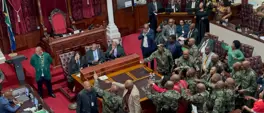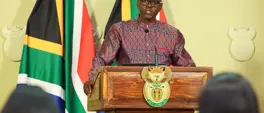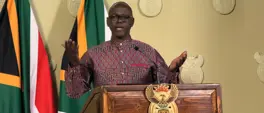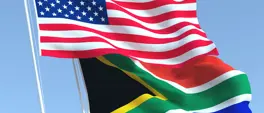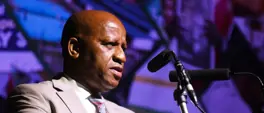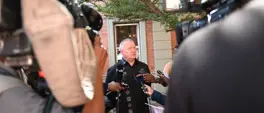ZWELETHU MADASA: Alliance of Sahel States a model of how Africa should handle trade negotiations
Zwelethu Madasa
7 September 2024 | 6:22The only beneficiaries in the activities of the African Union are the bloated bureaucracy, at the expense of the poor African masses. In contrast, the confederation of AES is self-funding by leveraging their natural resources, writes Advocate Zwelethu Madasa.
Over the past week, the Forum for China and Africa Cooperation (FOCAC) took place in China to review progress in the trade relationship between China and Africa, and to consider new proposals to enhance trade between the two partners.
Almost all African Union member states are represented at a very high level of the Head of States. The African Union (AU) as a body is represented separately by the African Union Commission chairperson. It is reported that the two-way trade between Africa and China is now at about $286 billion.
However, looking critically at the management of this trade relationship between China and Africa, it is clear that Africa’s approach to dealing with China is very fragmented.
Despite the perfunctory presence of the representative of the African Union Commission, each member state of the AU has attended the conference in their independent capacity to discuss their own domestic needs.
The absence of an African Union binding common policy position on trade with China is clearly weakening Africa’s ability to negotiate optimally and strategically. The Chinese side would probably have preferred to deal with a united and integrated Africa for efficiency of planning and optimum trade.
The fragmentation of the African Union after more than 20 years in existence points to a very weak leadership of the organisation which is struggling to extricate itself from the neo-colonial legacy of extraction-based trade relations with the West.
The only and promising exception to this fragmented African Union trade partnership with China is the emerging Alliance of Sahel States (AES), involving the Sahel States of Mali, Niger and Burkina Faso.
In addition, these countries have taken a new step further to form a confederation, claiming to do so to rid themselves of the neo-colonial relationship they have with France since attaining formal political independence.
By so doing, the AES are collectively asserting their international law-guaranteed rights to sovereignty and self-determination. These states are taking steps to develop forms of governance informed by their historical social and political realities on the ground, as opposed to imported and unsuitable forms of governance.
The Transitional President of Mali Assimi Goita has been appointed by consensus as the head of the Confederation of the Alliance of Sahel States on a one-year rotational basis.
A competitive examination of the AU mother body reveals a moribund organisation heavily dependent on the European Union for funding for all its programmes, including peace-keeping efforts.
Some observers rightly question as to how the AU can become fully integrated and independent from its former colonial masters when it is dependent on them to survive financially.
The lack of leadership in the AU is glaring. The Assembly of the AU decided some years ago already to self-finance the organisation from domestic sources. But until now, no progress has been made to implement those crucial decisions.
As Ugandan President Yoweri Museveni once observed correctly, the problem hindering integration in Africa is the neo-colonial self-serving bureaucracy.
When one critically looks at the activities and meetings of the AU, by and large you see a rehashing of old decisions captured in new language to give a false impression of progress.
The organisation is actively involved through EU funding in human rights, “good governance”, and “industry” in the guise of building the continent.
The only beneficiaries in the activities of the African Union are the bloated bureaucracy, at the expense of the poor African masses. The AU has no African Union strategy of dealing with its partners like China, Russia, EU, US, and many others.
In contrast, the confederation of AES is self-funding by leveraging their natural resources.
They have sent to China the rotational head of the confederation. The other members of the AES, Niger and Burkina Faso, are represented by their respective prime ministers under the steward leadership of the president of Mali.
This focused and united approach by the AES to trade partnerships is not only strategic to ensure a united voice and joint investments, but it is an efficient way of managing the scarce resources of these countries.
On the Chinese side, they have the confidence that the positions of the head of the confederation has the political support of all the head of states of the Alliance of Sahel States.
The way the AES Confederation is set up and working reflects the ideas upon which the AU was founded and is providing a model leadership to the AU and its regional constituent bodies on how the mother body should be working.
Advocate Zwelethu Madasa is a former member of Parliament, and a former Secretary-General of the Pan African Parliament
Get the whole picture 💡
Take a look at the topic timeline for all related articles.
Trending News
More in Opinion

12 December 2025 15:34
CHARLES MATSEKE | The Republic of commissions arrives at its point of no return

12 December 2025 14:15
REBONE TAU | Ekurhuleni needs bold, decisive leaders to reverse years of capture

12 December 2025 05:13
MANDY WIENER | Searching for a superhero with a spine of steel: Why the position of NDPP matters so much




